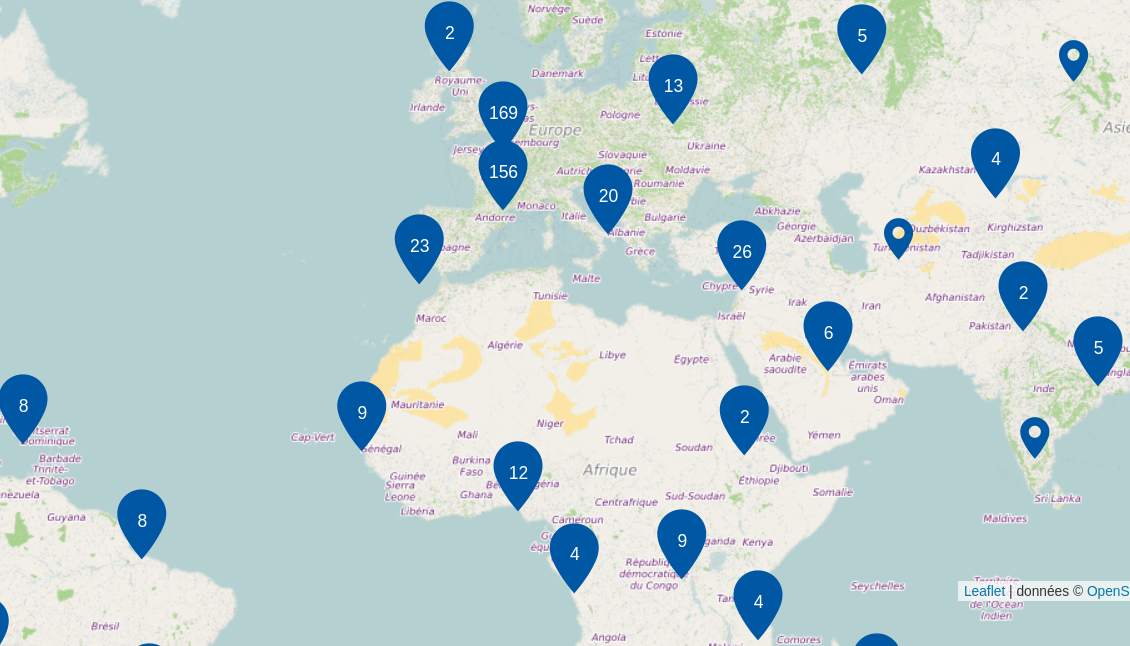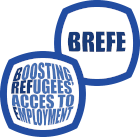Testimonies
Three types of testimonies are presented: stories of refugees, integration paths seen from the professionals' point of view and initiatives told by the people who implement them. They show that a successful professional integration requires the joint involvement of several actors. They can be accessed either directly or by keywords.
How to teach technical skills and specific language on-the-job
Symposium Osteria Enoteca, a restaurant and wine tavern, is a micro company made up of young, motivated personnel who are attentive to diversity management policies.
They recently hired a Kurdish refugee as assistant cook. The insertion of a foreign worker was not properly sought, but it happened in a rather random way, through a personal contact with a local charity organization, which presented the candidate. He was placed because of his soft skills and previous cook experience. The guy started to work on traineeship (with the salary paid by a local Foundation) and was then employed with a permanent working contract.
The main problems faced by the company were related to language and culture differences: the guy did not know the Italian technical language (names of ingredients, tools, verbs related to the art of culinary) and did not know how to prepare the courses, not having any experience on Italian food, traditions, recipes and tastes. So it was necessary to teach him technical language and professional information on-the-job. Several simple techniques were used to help him improve his technical Italian: adhesive strips with the Italian name of tools were stick on the wall and kitchen equipment/furniture; photos made and saved on mobile phones with specific labels; all work processes were repeated aloud by native colleagues with emphasis on the names of objects and verbs used; the preparation of the recipes was accompanied by the story of local tastes and culinary traditions; continuous corrective feedback was given and in case of need English was used as a vehicular language. The Italian staff used listening and dialogue based on mutual respect. This generated a bond of trust and collaboration that made the difference. This way of relating produced significant added value by improving the business climate and encouraging the work team to work together to solve problems by taking on the task as a team.
Symposium does not explicitly adhere to CSR models, but it operates in a socially responsible manner in an unconscious way. It is inspired by principles of genuineness with respect to the quality of products in relation to both food and wine. It does not make distinctions of origin or gender: people who need and want to work, who are motivated and willing to learn, willing to commit themselves and serious are well received. The success story of this micro company teaches that soft skills and motivation may be more important than technical ones and language and communication problems may be solved with a good deal of creativity and patience.

A successful integration thanks to an intrinsic determination supported by the parish community
Yunan was 25 years old when he arrived in France in 2017 with his parents and sister. They fled Iraq because of the war. They joined the province of Haute-Loire to meet members of the Iraqi community native from the Nineveh plain who had been welcomed by a Catholic parish, including his fiancée. The support set up by the parish allows Yunan and his family to be housed in an environment with daily contacts with French people. Supported in their administrative procedures, they also benefit from the network of volunteers for material matters, such as local mobility.
Yunan was granted refugee status a few months later. Very active, he has participated as a volunteer in renovation work. A few months later he found a job as a painter plasterer thanks to the network of volunteers. He therefore requested to postpone the language courses prescribed by the French Office of Immigration and Integration when the reception and integration contract is signed.
Through contact with volunteers and then with his colleagues at work that Yunan has acquired the basics in French and developed oral communication skills in the first instance. On a personal level, Yunan married someone from the Iraqi community living in Le Puy. A few months later, aware of the importance of mastering French in writing, Yunan contacted the Greta to enrol in the mandatory language course prescribed by the French Office of Immigration, even-though he had already reached the A1 level in oral communication targeted by this prescription. The training has been therefore mainly oriented towards the development of written skills so that Mr H. could claim new responsibilities within the company in which he was employed. Indeed, even if the higher education he has followed in Iraq is not in the construction sector, he has been trained in team management and his employer wanted to give him a position as team leader.
Yunan says he wants to pursue in the host country the same objectives he had in his home country, namely to take up a position of responsibility, to start a family and to build a house. For him, the key to achieving these objectives is the willingness he deploys, particularly in his work, as well as the desire to participate in the "life of the city". He wishes to apply for French nationality and has enrolled in the language test to validate a B1 level in French in order to submit his naturalisation application file.

